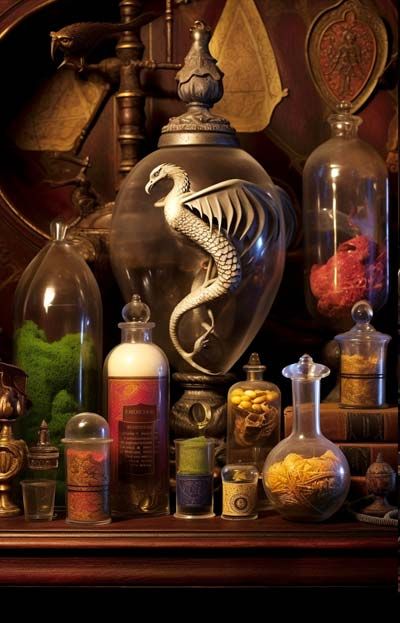Philosopher’s Stone
The Philosopher’s Stone is a legendary magical item that can produce the Elixir of Life, granting immortality, and can turn any metal into pure gold. Famous alchemist Nicolas Flamel is credited with creating the only known Philosopher’s Stone.
Philosopher’s Stone /fɪˈlɒsəfəz stoʊn/ noun
Philosopher’s Stone in the Wizarding World
- Creation: Created by Nicolas Flamel.
- Properties: Grants immortality via the Elixir of Life and can turn any metal into pure gold.
- Appearance: Described as red and shiny.
History of Philosopher’s Stone
- Discovery: Became widely known in the wizarding world after Nicolas Flamel’s success in creating one.
- Destruction: The stone was destroyed by Flamel to prevent it from falling into the wrong hands.
People Also Ask
- How does the Philosopher’s Stone work?
- Who else knew about the Philosopher’s Stone?
- Was the Philosopher’s Stone real?
How does the Philosopher’s Stone work? The Philosopher’s Stone is used in complex alchemical processes to produce the Elixir of Life and to transmute base metals into gold. The exact methods are closely guarded secrets known only to select alchemists.
Who else knew about the Philosopher’s Stone? Several wizards and witches knew about the stone, including Albus Dumbledore and Lord Voldemort. Its existence was a closely guarded secret within the wizarding community.
Was the Philosopher’s Stone real? In the Harry Potter universe, the Philosopher’s Stone was a real and powerful magical artifact. In real-world alchemical traditions, the stone is a legendary concept rather than a tangible object.
Philosopher’s Stone and the Quest for Immortality The Philosopher’s Stone represents the ultimate achievement in alchemy and the pursuit of immortality and perfection. Its ability to grant eternal life and create boundless wealth made it an object of fascination and desire.
However, the story of the Philosopher’s Stone also serves as a cautionary tale about the dangers of unlimited power and the wisdom of restraint. Nicolas Flamel’s decision to destroy the stone to prevent its misuse underscores the theme that some things are more valuable than eternal life or riches, such as integrity, responsibility, and the greater good.
The allure of the Philosopher’s Stone continues to capture imaginations, embodying the timeless human quest for mastery over life and the natural world, and the ethical dilemmas that accompany such pursuits.
Featured
Categories























